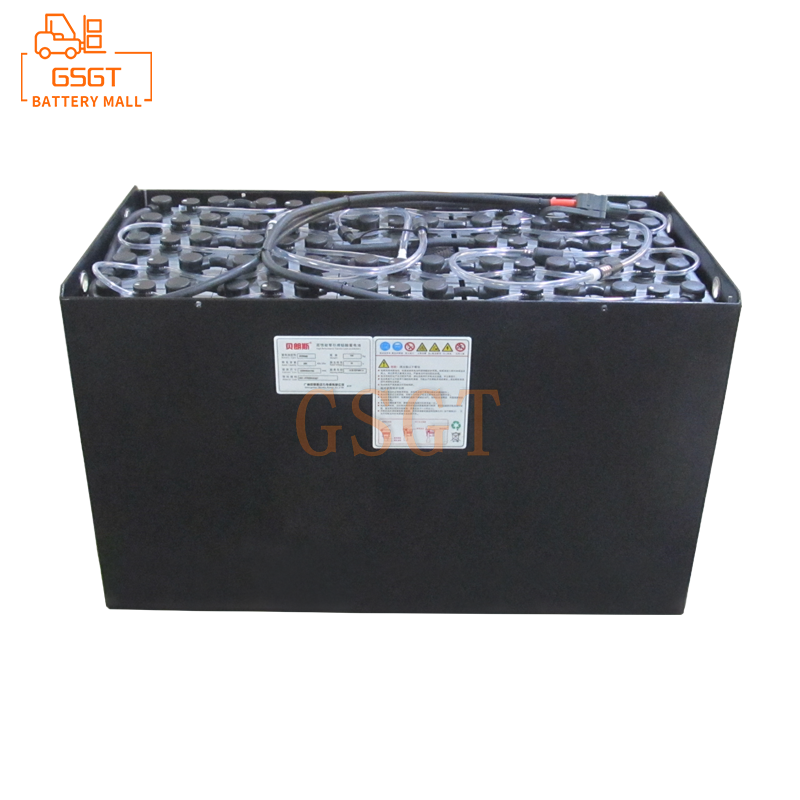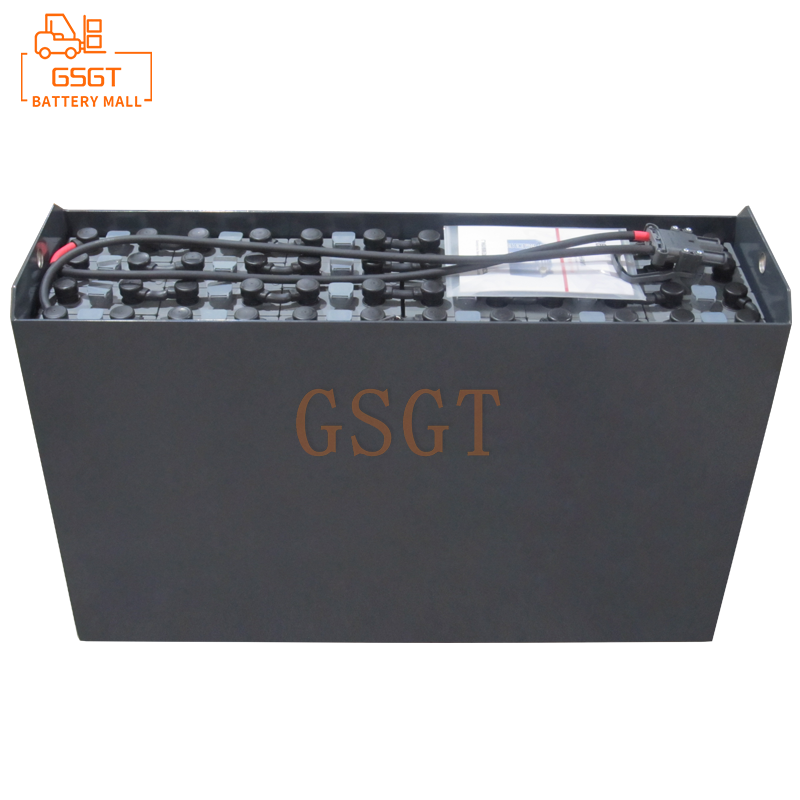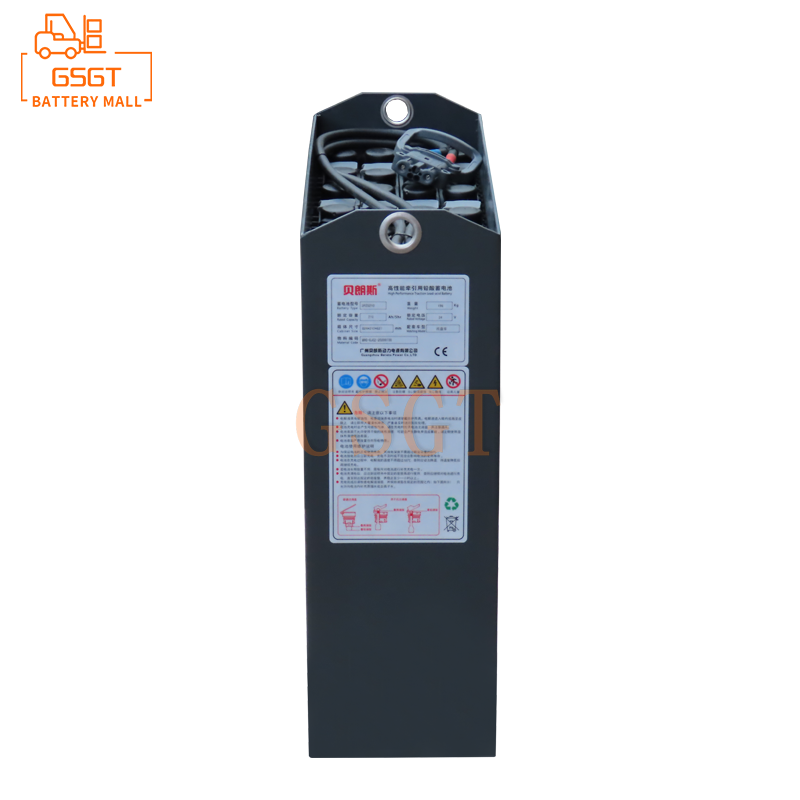Time:2025-07-03 10:40:14
Browse:617
Introduction
In the fields of modern logistics and industrial production, forklifts, as key material handling equipment, the selection of their power sources is of vital importance. Lead-acid batteries play an important role in the power system of forklifts due to their advantages such as mature technology, relatively low cost and high safety. However, to ensure the efficient and stable operation of forklifts, it is a key point to reasonably match the tonnage of forklifts with the capacity of lead-acid batteries. Forklifts of different tonnages have distinct requirements for lead-acid battery capacity due to their varying operational intensity, load capacity, and running time. This article will delve into the lead-acid battery capacities suitable for forklifts of different tonnages, providing comprehensive and practical references for forklift users and related practitioners.
The basic working characteristics of lead-acid batteries
Characteristics
Energy density: The energy density of lead-acid batteries is relatively low, which means that when storing the same amount of energy, their volume and weight are larger. However, for forklifts, which are relatively fixed in working scenarios and have a certain tolerance for space and weight, the basic requirements can still be met at present.
Charge and discharge characteristics: It has good charge and discharge characteristics and can output electrical energy at a relatively stable voltage within a certain range, meeting the power requirements of forklifts under different working conditions such as starting, accelerating, and handling goods. Generally speaking, the charging current of lead-acid batteries is usually 0.1 to 0.2 times their capacity. This ensures charging efficiency without causing excessive damage to the battery.
Cycle life: The cycle life of lead-acid batteries is generally around 300 to 800 times, which is closely related to factors such as the usage environment and the depth of charge and discharge. Frequent deep discharges will significantly shorten its cycle life, while shallow charging and discharging help to extend the battery's usage times. In the actual use of forklifts, if there is a considerable amount of remaining battery power at the end of each day's work, only shallow charging is carried out, which can effectively extend the overall service life of the battery.
The relationship between forklift tonnage and operational requirements
Small-tonnage forklifts
Operation scenarios: Mainly applied in the handling of light goods, such as the transportation of small packages in e-commerce warehouses and the transfer of components in light manufacturing workshops, etc. These scenarios usually have limited space and high requirements for the flexibility of forklifts.
Work intensity: The work intensity is relatively low, the weight of the goods moved each time is light, the traveling distance is short, and there may be many start-stop operations.
The characteristics of battery capacity demand: Due to the low operation intensity and short driving distance, the demand for lead-acid battery capacity of small-tonnage forklifts is relatively small. However, considering the frequent start and stop requirements for the battery's instantaneous discharge capacity, it is necessary for the battery to be able to provide a large current in a short period of time.
Medium-tonnage forklifts
Operation scenarios: It is often used for the handling of medium-weight goods, such as the loading and unloading of standard pallet goods in logistics centers and the handling of goods in large supermarket warehouses, etc. In these scenarios, forklifts need to operate in larger Spaces and travel relatively long distances.
Work intensity: The work intensity is moderate. The weight of goods handled each time is generally a few tons. The traveling distance may be several hundred meters or even longer. The start-stop operation is relatively less than that of small-tonnage forklifts, but there is a certain requirement for continuous working time.
The characteristics of battery capacity requirements: Medium-tonnage forklifts need batteries with a relatively high energy reserve to meet the requirements of continuous operation for a longer period of time. At the same time, as the goods being transported are relatively heavy, there are also certain requirements for the output power of the battery.
Large-tonnage forklifts
Operation scenarios: Mainly used for heavy cargo handling, such as loading and unloading containers at ports and docks, and transporting large steel materials in steel mills, etc. These scenarios have complex environments and large working Spaces, but they have extremely high requirements for the load-bearing capacity and stability of forklifts.
Work intensity: The work intensity is high. The weight of goods moved at one time can reach several tons or even dozens of tons. The traveling distance is long, and the working time is often long, possibly requiring continuous work for 8 hours or even longer.
The characteristics of battery capacity demand: Large-tonnage forklifts have very high requirements for the capacity of lead-acid batteries, and the batteries need to be able to provide huge energy reserves and stable high-power output. At the same time, to ensure the start-up and operation of forklifts under heavy loads, the low-temperature performance and instantaneous discharge capacity of the battery are also of vital importance.
Usage environment
Temperature: Temperature has a significant impact on the performance of lead-acid batteries. In high-temperature environments, the self-discharge rate of batteries increases, and the evaporation of the electrolyte accelerates, which may lead to a decrease in battery capacity and a shortened lifespan. In low-temperature environments, the internal resistance of the battery increases, the speed of chemical reactions slows down, and both the output power and capacity of the battery will be significantly affected. This may make it difficult to start the forklift and reduce its operating speed. Therefore, for forklifts used in high-temperature environments, the battery capacity should be appropriately increased or cooling measures should be taken. For forklifts used in low-temperature environments, batteries with better low-temperature performance should be selected, and the batteries may need to be preheated.
Humidity: A high-humidity environment may cause corrosion of the battery casing and connectors, affecting the performance and safety of the battery. For forklifts used in damp warehouses or coastal docks and other environments, battery casings and connecting parts with good moisture-proof and anti-corrosion performance should be selected. At the same time, the batteries should be inspected and maintained regularly.
Load variation: Frequent alternating operation between heavy and light loads places high demands on the battery's discharge characteristics. When forklifts are handling heavy loads, they require batteries to provide a large current, while when handling light loads, the current demand is relatively small. Such frequent load changes may intensify the sulfation of the internal plates of the battery, affecting its lifespan. Therefore, for forklift operation scenarios with significant load variations, in addition to choosing batteries of appropriate capacity, the deep discharge performance and cycle life of the batteries should also be taken into consideration.
Charging facilities and time
Charging facilities: If an enterprise has fast charging facilities that can replenish a large amount of power to the battery in a short time, then when choosing the battery capacity, it can be appropriately reduced. However, if the charging facilities can only provide regular slow charging, then a battery with a larger capacity needs to be selected to meet the forklift's working requirements for a day.
Charging time: The working system of the forklift will also affect the arrangement of charging time. If the forklift has sufficient time to charge at the end of each day's work, a battery of moderate capacity can be chosen and charged for a long time at night to meet the work requirements of the next day. However, if the forklift needs to be charged during short breaks during operation, the fast charging performance of the battery and the matching of charging time with working time need to be taken into consideration.
Conclusion
Forklifts of different tonnages have different requirements for the capacity of lead-acid batteries due to differences in their working scenarios, working intensities and other factors. When choosing the capacity of lead-acid batteries, not only the tonnage of the forklift should be taken into account, but also multiple factors such as the usage environment, load changes, charging facilities and time should be comprehensively considered. By rationally matching the tonnage of forklifts with the capacity of lead-acid batteries, it is possible to ensure that forklifts operate efficiently while extending the battery's service life and reducing operating costs. For forklift users and related practitioners, a thorough understanding of these knowledge points and scientific selection based on actual conditions are the keys to improving the operational efficiency and economic benefits of forklifts. In the future, with the continuous development of battery technology, it is believed that more efficient battery products that better meet the needs of different forklifts will emerge, further promoting the development of the forklift industry.

$3260

$3400

$860

$2610

MESSAGE
Professional And Efficient
Security
Affordable Price
Professional Services